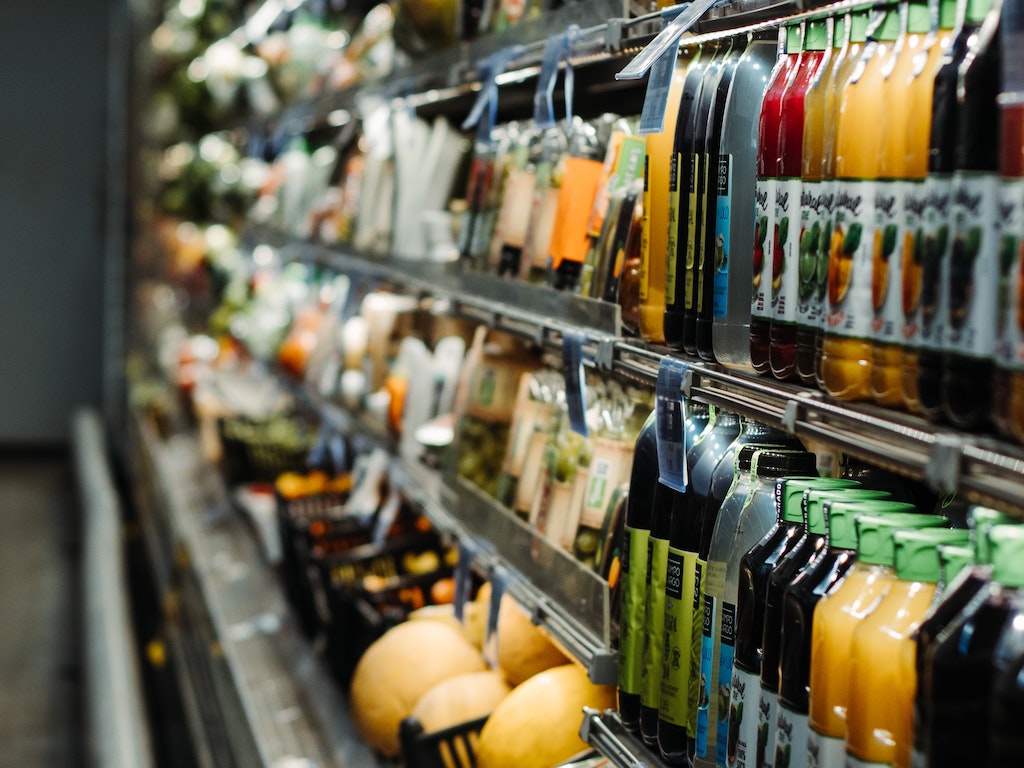3 Mins Read
Big food players have lost market share to smaller brands over 2020, finds a new report released by global data and market analytics company IRI. The ongoing consumer transition prompted a collective loss of more than US$12 billion in sales for large food manufacturers in the U.S., while smaller firms in the country managed to capture nearly one-third of the overall growth in the CPG industry experienced over the year.
New statistics published by IRI finds that small and extra-small CPG brands managed to gain market share over larger corporations in the U.S. over the course of 2020, with big food losing 1.3 share points in total, translating to US$12.1 billion in sales. Small brands and private labels captured almost one-third of the 10.3% annual growth of the whole CPG industry.
While large manufacturers still represent some 46.7% of the total U.S. sales, the steady drop in market share indicates a strong consumer transition towards smaller brands and their products, a trend that analysts say has accelerated due to the coronavirus pandemic.
Large manufacturers were not able to meet the surge in demand caused by the Covid-19 pandemic in the second quarter when they lost most share to smaller players who seized on this opportunity.
Dr. Krishnakumar Davey, President of Strategic Analytics, IRI
“Many large manufacturers were not able to meet the surge in demand caused by the Covid-19 pandemic in the second quarter when they lost most share to smaller players who seized on this opportunity,” explained Dr. Krishnakumar Davey, president of strategic analytics at IRI.
“Several brands attracted a number of new buyers as in-home consumption surged. Large manufacturers fared relatively better in the third quarter, but still lost significant share.”
The convenience channel, which has traditionally been dominated by large manufacturers, saw dramatic sales decline as pandemic-related social distancing measures continue to keep consumers at home.
Smaller brands were able to gain market share due to their presence in food categories that cater to “distinct needs”, as shoppers are now looking for more variety and “change of pace”, the researchers find. Some of these product categories include frozen fruit, snacks and shelf-stable products. In the non-food department, products that were in high demand due to the pandemic, such as hygiene and personal care items, saw big brands lose out to smaller players who were able to fill the gap as manufacturers struggle to cope with a sudden surge in sales.
While some of the 2020 consumption trends will continue with consumers working from home at least part-time…We expect smaller and mid-sized players to continue to gain share from large manufacturers.
Dr. Krishnakumar Davey, President of Strategic Analytics, IRI
Analysts believe that the consumer shift will last into the long-term, even after the pandemic subsides, which will allow smaller brands to continue gaining market share over bigger players.
“While some of the 2020 consumption trends will continue with consumers working from home at least part-time…We expect smaller and mid-sized players to continue to gain share from large manufacturers,” explains Davey.
Though the report did not mention any particular smaller brands that managed to bring in the greatest gains, recent trends suggest that the plant-based segment has performed especially well over the course of 2020. Startups such as Impossible Foods, for instance, saw its sales surge as consumers shift away from animal-based products, driving what the company has described as its largest expansion in its ten-year history.
With the plant-based sector poised to grow significantly over the next years, big food players in the U.S. and globally are keen to jump on the bandwagon to avoid any more losses in market share. Describing the trend as “inexorable” in a recent interview, Unilever CEO Alan Jope said that the corporation’s future strategy is to dramatically ramp up its plant-based offerings to reach its newly set €1 billion (approx. US$1.2 billion) sales target.
Other conglomerates like Swiss giant Nestlé, French corp Danone and retailers such as Tesco and M&S have also made clear their intention to invest in vegan food in response to consumer shifts.
Lead image courtesy of Unsplash.




